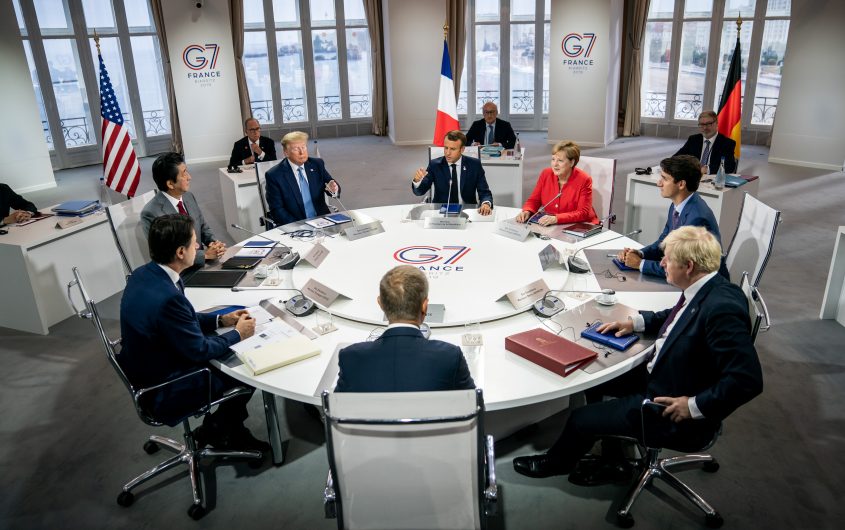
Michael Kappeler/picture alliance via Getty Images
Between Nationalism and Multilateralism: A Renewed Approach for Transatlantic Economic Engagement

Peter S. Rashish
Vice President; Director, Geoeconomics Program
Peter S. Rashish, who counts over 30 years of experience counseling corporations, think tanks, foundations, and international organizations on transatlantic trade and economic strategy, is Vice President and Director of the Geoeconomics Program at AICGS. He also writes The Wider Atlantic blog.
Mr. Rashish has served as Vice President for Europe and Eurasia at the U.S. Chamber of Commerce, where he spearheaded the Chamber’s advocacy ahead of the launch of the Transatlantic Trade and Investment Partnership. Previously, Mr. Rashish was a Senior Advisor for Europe at McLarty Associates, Executive Vice President of the European Institute, and a staff member and consultant at the International Energy Agency, the World Bank, UN Trade and Development, the Atlantic Council, the Bertelsmann Foundation, and the German Marshall Fund.
Mr. Rashish has testified before the House Financial Services Subcommittee on International Monetary Policy and Trade and the House Foreign Affairs Subcommittee on Europe and Eurasia and has advised three U.S. presidential campaigns. He has been a featured speaker at the Munich Security Conference, the Aspen Ideas Festival, and the European Forum Alpbach and is a member of the Board of Directors of the Jean Monnet Institute in Paris and a Senior Advisor to the European Policy Centre in Brussels. His commentaries have been published in The New York Times, the Financial Times, The Wall Street Journal, Foreign Policy, and The National Interest, and he has appeared on PBS, CNBC, CNN, NPR, and the BBC.
He earned a BA from Harvard College and an MPhil in international relations from Oxford University. He speaks French, German, Italian, and Spanish.
Issue Brief 59
The Ancient Greeks invented the concept of the Golden Mean, and the idea that “the truth lies somewhere in the middle” is a well-rooted one. Given the opposing international economic policies of U.S. nationalism and European Union multilateralism that are contributing to the polarization of transatlantic relations, is there a center ground that the United States and the European Union could jointly occupy?
Yes, but not because these two concepts are equal outliers judged against a commonsense mid-point of policy. Multilateralism has a 75-year record of mitigating trade, currency, environmental, and other economic conflicts through the World Trade Organization, the International Monetary Fund, the UN, and similar institutions and agreements. Nationalism—and its associated destruction in the twentieth century—gave rise to the postwar multilateral institutions that were created to serve as its antidote. Multilateralism’s performance today may be lackluster (especially in trade policy) but a return to the protectionism and mercantilism of the 1930s would shipwreck the global economy.
These considerations notwithstanding, there is a space that lies between the “America First” nationalism of the Trump administration and a historic allegiance within the EU to multilateralism where policies can be crafted to promote the global economic interests of both sides of the Atlantic. But for this approach to be successful it will be essential that Americans and Europeans first grasp the distinction between liberalism and multilateralism in international economic relations.








